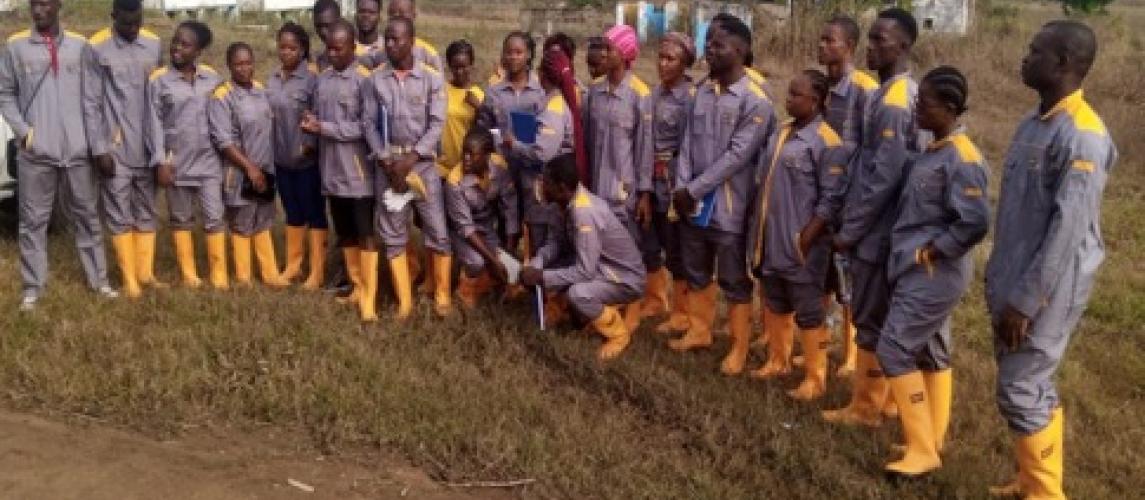
Mercy Ships Training Program Empowers 29 Young Entrepreneurs
The Mercy Ships Food for Life Training Program, in partnership with Central Agricultural Research Center, has graduated 29 young people in various food processing skills and techniques in Bong County.
Addressing the young entrepreneurs, CARI Director General, Dr. Victor H. Sumo calls on the graduates to make maximum use of the knowledge gained and explore business opportunities and take lead of the entrepreneurial industry because research has shown that for professionals who solely depend on monthly salaries and are not involved into private businesses are destined for poverty or underclass after retirement.
Dr. Sumo reminded the graduates to see the knowledge gained from the Mercy Ships Food for Life Training Program as a cup of water from the ocean. “If you have some skills, the best you can do is to commercialize it. What you have learned from here, the best you can do is to establish small businesses. It doesn`t has to be much money.”
He said professionals, for example, a teacher in the field of education teaching for many years, but did not build an elementary school as business, or medical doctor who worked over time for an establishment, but did not invest in building a pharmacy or a private medical center as a business, both of them when retired, it is highly likely to end up in poverty or the underclass in the society.
The head of CARI said: “For those of us that are into career areas and are working for monthly incomes, we must use our careers to derive other benefits outside of where we work. Research has shown that the results of professionals who do not invest in private businesses would be poverty, at least the underclass and at most near the middle class.”
The Director General, who challenged the graduates to work in smaller teams and build a network, promised the graduates that the first five of them to establish entrepreneurship will receive support from CARI to improve the quality of their products to meet the required standards and demand for local consumers.
Since the capitalist world has taken a commercialized position, the Director General encouraged agriculturalists that are working with institutions, including those that are not working with institutions in the country, to think outside the bubble and establish their own farms, storage facilities, processing hubs for packaging, and to join networks and link up with the local market.
In his statement, the guest speaker, Representative Edward W. Karfiah challenged the graduates to go and change the world by breaking the limits to be employers and not employees.
Sounding words of encouragement to the entrepreneurs, Representative Karfiah declares: “You can be an employer instead of being an employee; you can break the limits, but equally remember that life is not all about making money it is about securing our environment and making safe o our generations to come.
“Change the world, change your environment, change your community, and start up a small business that would employ the less fortunate, underprivileged and give hope to the hopeless and give that healing that someone needs in your community because you have the intelligence and skills to transform your community. These people depend on you because the chance you have today for Mercy Ships has offered you, not take this knowledge and go back and start looking for jobs”
The Bong County lawmaker, delving succinctly into climate change and its adverse impact on agriculture, reminds graduates that while it is true that many clients demand sustainability, innovation in agriculture as any other field of study does not require the latest technology and hardware, but using resources more efficiently and sustainably, is equally important.
According to Karfiah, to enhance agribusiness entrepreneurship in Liberia, the graduates have to focus on a few things: bring innovation to bear, find solutions to reducing the impact of global warming, improve the marketplace, enhance the business environment, and focus on improving farm-to-market roads.
The lawmaker adds: “We further insist here that to achieve our goal to change our environment and communities, we have to learn new ways to use our land and water resources and safeguard our ecosystem and preserve our species.”
